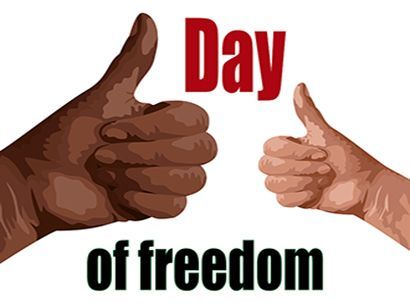This Week's Story
subscribe to podcast [click here] or play audio below
Why would America, famous as the land of freedom, allow slavery?

This Week’s Story relives American history and the Bible through brief inspiring stories presented on mp3 audio recordings and text for reading.
Civil War: Why would the United States allow slavery? part one
I had a private storyteller who was born in 1880, fifteen years after the Civil War. Nonnie, my grandma, was old and smart!
My favorite setting for listening to her was Chicago’s cold winter nights. Nonnie would put an oven-warmed brick, wrapped in cloths by my feet. As warmth spread, her stories began.
The people and their challenges were fascinating. They convinced me that every person deserves to be free and treated with fairness.
After my storytelling years with Nonnie, I began reading and found books about famous people in American history. I had questions. Why would America, famous as the land of freedom, allow slavery in any part of the country? Didn’t that contradict the spirit of the Declaration of Independence?
How could slavery be a cause in the bloodiest war in American history? How could Americans justify killing more of their own people, 750,000 according to new research, than they lost in their combined
death total from the American Revolutionary War through the Korean War?
How could people claim that their most revered book, the Bible, taught that blacks were inferior. The first chapter of the Bible stated that God created male and female in His image. Many other references stated that He did not practice favoritism.
I wondered: How would Union President Abraham Lincoln and Robert E. Lee, Commander-in-Chief of the opposing Confederate army describe the war? What did it prove? Did the suffering bring freedom and fairness?
How would Union General Ely Parker, a Native American leader, talk to a white Southerner? At one time he was refused entrance into the Union Army because of his race. At the signing of the surrender terms General Robert E. Lee remarked to General Parker, “I am glad to see one real American here.”
General Parker, the Native-American, answered, “We are all Americans.”
What memories did my great-grandfather carry from the war? He was an uncelebrated veteran of the bloodiest American War. I have a newspaper clipping reporting that he was officially discharged from the Union army at the end of the Civil War in 1865.
If I was a black man who wanted to fight in the Civil War, I would have been rejected when the war began. The Union Army would not accept blacks to be soldiers until they were desperately needed. Whites were quickly admitted.
The governor of Ohio declared, “This is a white man’s government, that white men are able to defend it and protect it, and that to enlist a negro soldier would be to drive every white man out of the service!”
Many influential blacks, like Frederick Douglass, pleaded to help bring an end to slavery and allow black men to join the Union Army. Some white leaders agreed. Governor John Andrew of Massachusetts had struggled for years to end slavery.
Then came the opportunity for the 54th Massachusetts Infantry Regiment. It would be the first African-American regiment in the American Civil War.
This is Barbara Steiner. The bravery of the 54th Regiment will soon catch our attention.
Investigate thisweeksstory.com.
<< previous story] [next story >>
We invite your comments! [click here to comment]
This Week's Story is a non-profit supported by listeners. [click here to make a donation]
